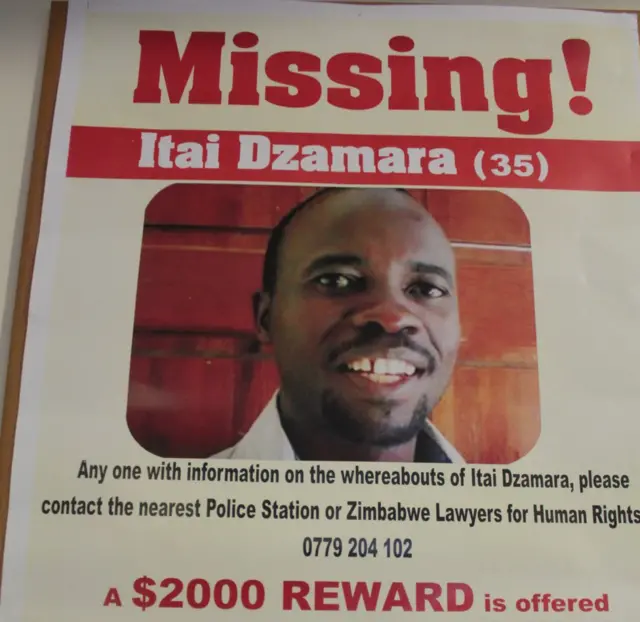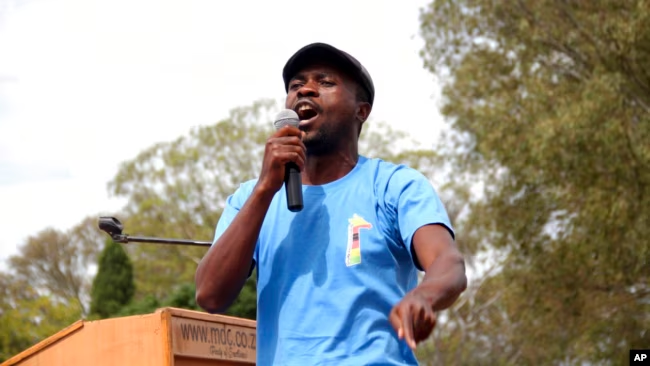Nearly a decade after the disappearance of Zimbabwean journalist and human rights activist Itai Dzamara, his family continues to seek answers about his fate, highlighting ongoing concerns about human rights and political dissent in the southern African nation.

Dzamara, an outspoken critic of the government, vanished on March 9, 2015, while getting a haircut at a barbershop in Harare’s Glennorah neighborhood. Witnesses reported that he was abducted by individuals suspected to be state security agents, a claim the government has consistently denied.
Sheffra Dorica Dzamara, Itai’s wife, expressed her anguish over the prolonged absence of information about her husband’s whereabouts. “It’s almost 10 years without knowing where Itai is,” she told The Associated Press. “I don’t want to lie, it’s painful if I think about it and no one can tell what happened to him. He disappears from Zimbabwe and there is silence about it.”
The disappearance has left a profound impact on the Dzamara family. Sheffra, now the sole breadwinner, struggles to support her family on approximately $300 a month. She poignantly described the emotional toll on their children, who were 7 and 2 years old at the time of their father’s disappearance. “They now ask: ‘Where is our daddy?’ and no one can explain what happened to him,” she said.
Prior to his disappearance, Dzamara had been a vocal activist, regularly protesting outside the parliament building in Harare. He called for the government of then-President Robert Mugabe to respect human rights and address the country’s economic crisis.

The case has drawn attention from international human rights organizations. Amnesty International believes Dzamara is a victim of enforced disappearance, a tactic the organization says is used to silence dissent in Zimbabwe.
Lucia Masuka, head of Amnesty International in Zimbabwe, urged the current government under President Emmerson Mnangagwa to intensify efforts to locate Dzamara.
“Enforced disappearances are deployed as a strategy to silence activists, to silence those expressing dissent in this country,” Masuka stated. She emphasized that Dzamara was well-known for speaking out against corruption and bad governance, and for leading peaceful protests.
Legal efforts to resolve the case have been frustratingly unsuccessful. Charles Kwaramba of Zimbabwe Lawyers for Human Rights revealed that despite obtaining a court order in 2015 directing police to search for Dzamara, law enforcement has largely ignored the directive. “The investigation into Itai Dzamara’s disappearance is virtually dead,” Kwaramba said, noting that police communication about the case ceased long ago.
When approached for comment, Paul Nyathi, spokesperson for the Zimbabwe Republic Police, declined to discuss Dzamara’s case, further underscoring the lack of progress in the investigation.

The Dzamara case is emblematic of broader human rights concerns in Zimbabwe. Rights groups have consistently criticized the country for human rights abuses spanning decades, encompassing both the Mugabe era and the current administration under Mnangagwa.
Despite several public demonstrations aimed at pressuring the Harare government to reveal Dzamara’s fate, no substantial progress has been made.
The case remains a stark reminder of the challenges faced by activists and dissenters in Zimbabwe, where enforced disappearances and political repression continue to be reported by human rights organizations.
As the ten-year mark of Dzamara’s disappearance approaches, his family’s ongoing quest for answers serves as a poignant call for accountability and transparency in a nation still grappling with its human rights record.
The case continues to draw international attention, highlighting the need for Zimbabwe to address its human rights challenges and ensure the safety and freedom of expression for all its citizens.



